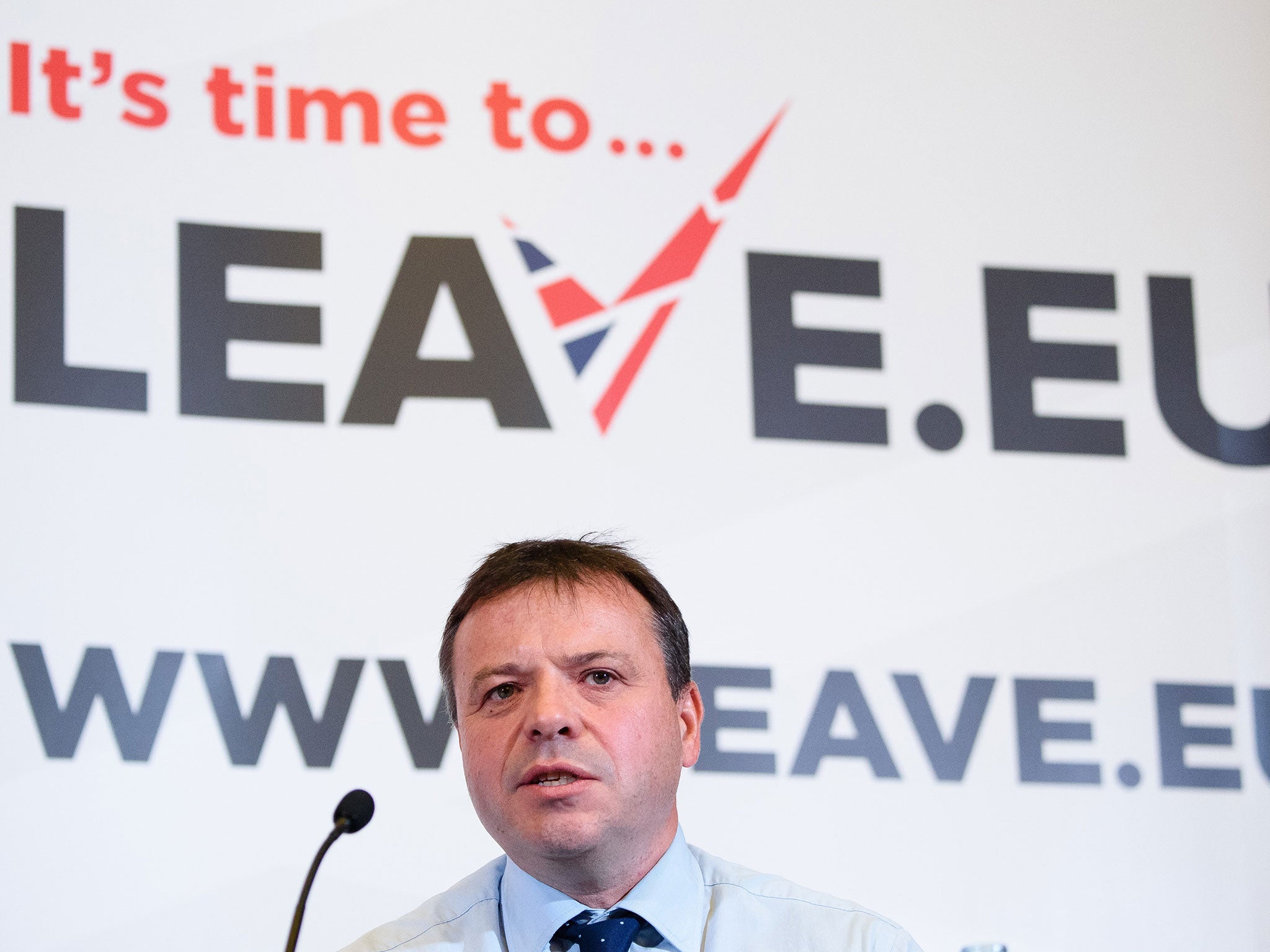EU referendum: 'Brexit' campaign groups clash over call to become single 'unstoppable force'
Founder of Leave.EU labels Vote Leave chief 'a liability' as organisations exchange insults over 'formal merger'

Deep divisions between campaigners for a British exit from the EU have been laid bare after the two organisations vying to be the official ‘Out’ campaign exchanged insults over an abortive ‘merger offer’.
Vote Leave, the campaign group spearheaded by Michael Gove’s former advisor Dominic Cummings, firmly rejected a call from Leave.EU, founded by the millionaire UKIP donor Arron Banks, for talks on becoming a single “unstoppable force”.
In a letter to Vote Leave’s chief executive Matthew Elliott, Mr Banks labelled Mr Cummings “a liability and a danger” and claimed he was “the only person standing in the way of a formal merger”.
However, Vote Leave promptly responded, categorically stating there would be no merger and branding the letter a stunt aimed at discrediting their organisation in the eyes of the Electoral Commission, which is set to rule on which of the two groups will become the official “Out” campaign, a status that grants access to public funding, higher spending limits and TV airtime.
The spat came as the Polish President said that “Brexit” could lead to a “big crisis” and even the collapse of the EU.

In one of the strongest warnings yet from a European leader of the consequences of a British ‘No’ vote, Andrzej Duda said Europe should seek “a compromise, but a cautious compromise” with the UK.
David Cameron is hoping to secure a deal on Britain’s relationship with the EU at a summit in February, with the referendum likely to be held as early as June this year.
Campaigners with the cross-party Vote Leave campaign are understood to be extremely resistant to any merger with Leave.EU, which is considered too close to UKIP leader Nigel Farage.
Leave.EU, meanwhile, has been critical of Mr Cummings’ recent suggestion that a second referendum may have be held in the event of a vote to leave, in order secure public backing for the details of any new arrangement between the UK and the EU.
A number of Eurosceptics believe that such a strategy would boost their cause vote by lessening ‘the sense of risk’ surrounding a vote to leave.
However, in his letter to Mr Elliott, Mr Banks said he had been “appalled” by members of Vote Leave advocating two referendums.
“The actions of your colleagues and previous historic statements suggest you are committed to staying in a reformed EU rather than campaigning for a Leave vote. It is inconceivable that the Electoral Commission could award Vote Leave the official designation while you remain committed to reform through a second referendum.
“As I have said previously, the only person who stands in the way of a formal merger is Dominic Cummings. With his latest comments suggesting the Prime Minister use anything other than Article 50 [the section of Lisbon Treaty that addresses exits from the EU] to initiate our withdrawal from the EU, he has become a liability and a danger to both Leave campaigns.”
However, he said it would be important to have “one united Leave campaign”.
“I therefore extend my hand, again, for us to open up talks about how we can move forward as one unstoppable campaign devoted to securing a Leave vote.”
The offer was dismissed by senior sources with Vote Leave, who accused Leave.EU of attacking Mr Cummings rather than challenging the arguments of the ‘In’ campaign, Britain Stronger in Europe.
A spokesman said: "There will be no merger."
Speaking in Brussels, Polish president Mr Duda said his country would resist attempts by the UK to cut “the rights and entitlements” of Poles working in Britain – a reference to Mr Cameron’s call for a four-year freeze on in-work benefits for EU migrants.
“We must seek a compromise, but a cautious compromise, not to undermine basic freedoms in the EU, which are very important to Poles,” he said.
Join our commenting forum
Join thought-provoking conversations, follow other Independent readers and see their replies
Comments
Bookmark popover
Removed from bookmarks